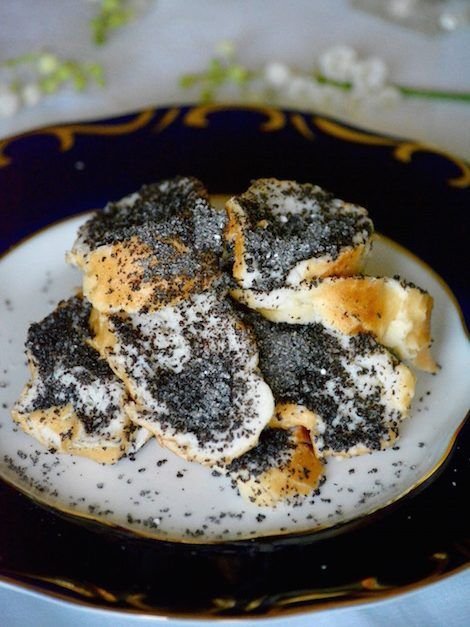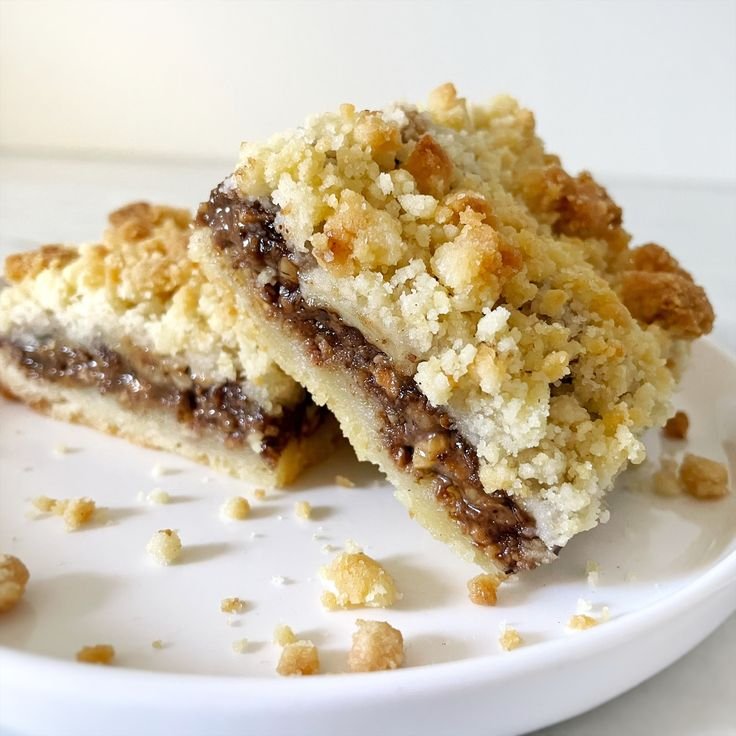
Hungarian Lemon Blueberry Loaf: A Sweet and Tangy Delight
Introduction
The Hungarian Lemon Blueberry Loaf is a perfect balance of bright citrus flavors and juicy, sweet blueberries, making it a delicious treat for any time of day. This moist and tender loaf cake is often enjoyed with a cup of tea or coffee, bringing warmth and comfort to the table. While the combination of lemon and blueberries is popular worldwide, this particular variation includes traditional Hungarian baking techniques that enhance its flavor and texture. Whether served as breakfast, a snack, or dessert, this loaf is sure to become a family favorite.
A Brief History of Hungarian Baking
Hungary has a rich culinary tradition, particularly when it comes to baked goods. From Dobos Torta to Kifli and Beigli, Hungarian desserts often combine natural ingredients with well-balanced flavors. Citrus fruits, such as lemon, have long been incorporated into traditional Hungarian baking, adding brightness to sweet pastries and cakes. Blueberries, while not native to Hungary, have been embraced in modern Hungarian kitchens, often appearing in fruit-filled cakes and sweet loaves.
This Lemon Blueberry Loaf is a modern interpretation of Hungarian baking, incorporating fresh ingredients, a tender crumb, and a delightful citrus glaze that adds a touch of indulgence.
Ingredients for Hungarian Lemon Blueberry Loaf
This loaf consists of three key elements: the batter, the blueberries, and the lemon glaze.
For the loaf:
- 1 ½ cups (190g) all-purpose flour
- 1 teaspoon baking powder
- ½ teaspoon baking soda
- ¼ teaspoon salt
- ½ cup (115g) unsalted butter, softened
- ¾ cup (150g) granulated sugar
- 2 large eggs
- 1 teaspoon vanilla extract
- Zest of 1 lemon
- ⅓ cup (80ml) fresh lemon juice
- ½ cup (120g) sour cream or Greek yogurt
- 1 cup (150g) fresh blueberries (tossed in 1 tablespoon flour)
For the glaze:
- ½ cup (60g) powdered sugar
- 2 tablespoons fresh lemon juice
Step-by-Step Preparation
1. Preparing the Batter
- Preheat the oven to 350°F (175°C). Grease and line a 9×5-inch (23x13cm) loaf pan with parchment paper.
- In a medium bowl, whisk together the flour, baking powder, baking soda, and salt. Set aside.
- In a large mixing bowl, cream the butter and sugar until light and fluffy. This step is crucial for a soft, airy loaf.
- Beat in the eggs, one at a time, ensuring each is fully incorporated before adding the next.
- Mix in the vanilla extract, lemon zest, and lemon juice for a fresh and aromatic flavor.
- Alternate adding the flour mixture and the sour cream (or Greek yogurt), beginning and ending with the flour. This creates a tender texture.
- Gently fold in the floured blueberries to prevent them from sinking to the bottom.
2. Baking the Loaf
- Pour the batter into the prepared loaf pan and smooth the top with a spatula.
- Bake for 50–55 minutes, or until a toothpick inserted into the center comes out clean.
- Let the loaf cool in the pan for 10 minutes, then transfer it to a wire rack to cool completely.
3. Making the Lemon Glaze
- In a small bowl, whisk together the powdered sugar and lemon juice until smooth.
- Drizzle the glaze over the cooled loaf and allow it to set for about 10 minutes before slicing.
Why This Lemon Blueberry Loaf Stands Out
- Hungarian baking techniques ensure a tender, moist crumb.
- Fresh blueberries add bursts of natural sweetness, complementing the tart lemon.
- Greek yogurt or sour cream enhances richness and prevents dryness.
- A delicate lemon glaze brings an extra layer of flavor, balancing sweetness and acidity.
Tips for the Perfect Loaf
- Use room temperature ingredients for a smoother batter.
- Coating blueberries in flour prevents them from sinking to the bottom.
- Do not overmix the batter to keep the loaf light and fluffy.
- Use high-quality vanilla extract and fresh lemon juice for the best flavor.
- Let the loaf cool completely before glazing to prevent the glaze from melting into the cake.









